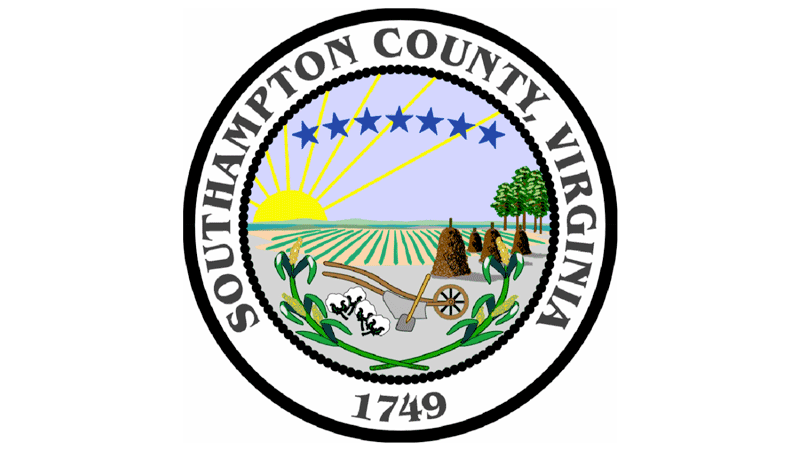Revised chicken ordinance draws crowd at planning
Published 2:41 pm Thursday, May 25, 2017
WINDSOR
Numerous Windsor residents spoke during the town’s Planning Commission meeting on Wednesday evening regarding the commission’s proposed changes to the town’s residential chicken ordinance.
The most current draft of the revised ordinance specifies that backyard chickens are permitted in residential districts zoned R-1 or R-4, and imposes the following conditions:
• All chickens must be provided with a predator-proof shelter that is thoroughly ventilated, easily cleaned and that provides adequate protection from the elements. Pens must also be a minimum of 10 square feet per chicken.
• All shelters and associated structures, including fencing, shall be located fully to the rear of the residential structure and shall comply with all setbacks for primary structures.
• All chickens shall have their wings clipped to prevent excessive ranging and shall be prohibited from free ranging unless under the supervision of the owner or his designee.
• The maximum number of chickens permitted on a residential property shall be six, and the keeping of other types of poultry or fowl is prohibited. No roosters shall be permitted to be kept on a residential property.
• All shelters and associated structures, including fencing, shall be kept in a neat and sanitary condition at all times and must be cleaned on a regular basis to prevent odors outside the boundaries of the property. All feed for the chickens shall be kept in a secure container or location to prevent the attraction of rodents or other animals.
• No person shall store, stockpile or permit any accumulation of chicken litter and waste in any manner whatsoever that, due to odor, attraction of flies or other pests, diminishes the rights of the adjacent property owners to enjoy reasonable use of their property.
• No commercial activity, such as the selling of eggs or chickens for meat, shall be permitted to occur from the residential property.
• A zoning permit shall be required for the keeping of chickens.
• Keeping of chickens is permitted when in conjunction with some other permitted use within the public district.
Speakers included Bentley Richardson, husband to Windsor Mayor Carita Richardson; Dakota Bernacki, son of Councilman Walter Bernacki, and his wife, Gayle; Kelly Blankenship; Larisa Williams and Councilwoman Patty Flemming.
Richardson was concerned with the language specifying a “predator-proof shelter,” saying that predators of chickens in this geographic area include dogs, cats, coyotes, possums, skunks, weasels, hawks and several other indigenous animals, and that snakes might also eat any eggs laid. He added that chicken owners would have to address a number of diseases to which chickens would be susceptible, some of which are communicable to humans such as salmonella.
He also asked the commission to define “free range” and what residents should do if they buy baby chicks and some turn out to be roosters.
The Bernackis, however, said they never had any issues with communicable diseases or snakes in the coop when they raised chickens, nor did they ever have any issues dealing with the waste produced by the chickens.
“Once you start taking care of any animal, you always have the risk of disease, you deal with it by taking preventative measures like washing your hands,” Dakota Bernacki said.
He added that when they would discover that some of their chicks were going to grow up to be roosters, they would find local farmers willing to take them, and said he also felt the setbacks mandated for chicken coops could exclude some residents who have the necessary square footage but due to lot configuration, would not be able to legally raise chickens.
Blankenship also spoke regarding the setback requirement.
“My lot is long but not deep; I couldn’t accommodate a 25-foot setback and don’t see how a chicken coop is any different than a shed, which only needs a 5-foot setback,” she said.
Williams suggested that residents who need to part with roosters could take them to the chicken swap held on Saturdays at the local Tractor Supply store.
Flemming agreed that chickens’ potential for attracting predators was a safety concern for residents.
“There are poisonous snakes out there. I have a pair of foxes in my backyard and raccoons, possums, and several other things, so I know if I get chickens in my backyard I will have a lot of company,” she said.
Commission member Glyn Willis said he felt it was more important to come up with a setback requirement that was equitable between those who wanted to raise chickens and neighbors who did not want to deal with chickens, rather than trying to legislate so that everybody could raise chickens.
“The comment about a small backyard… that’s a decision I make when I buy that house and lot, and it has restrictions that I have to live with the rest of the time I’m in that house,” he said.
Commission member George Stubbs said he felt the commission should further investigate the legality of disposing of chicken waste in with regular household trash and what owners’ options were for burial and/or disposal of deceased chickens.
Town Manager Michael Stallings said he would re-draft the ordinance to address some of the concerns raised during the meeting and present a new draft at the commission’s next meeting on June 28. The commission will discuss the ordinance once more before holding an official public hearing on the matter.





